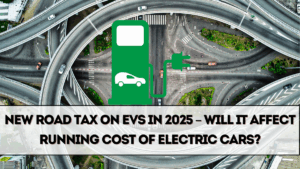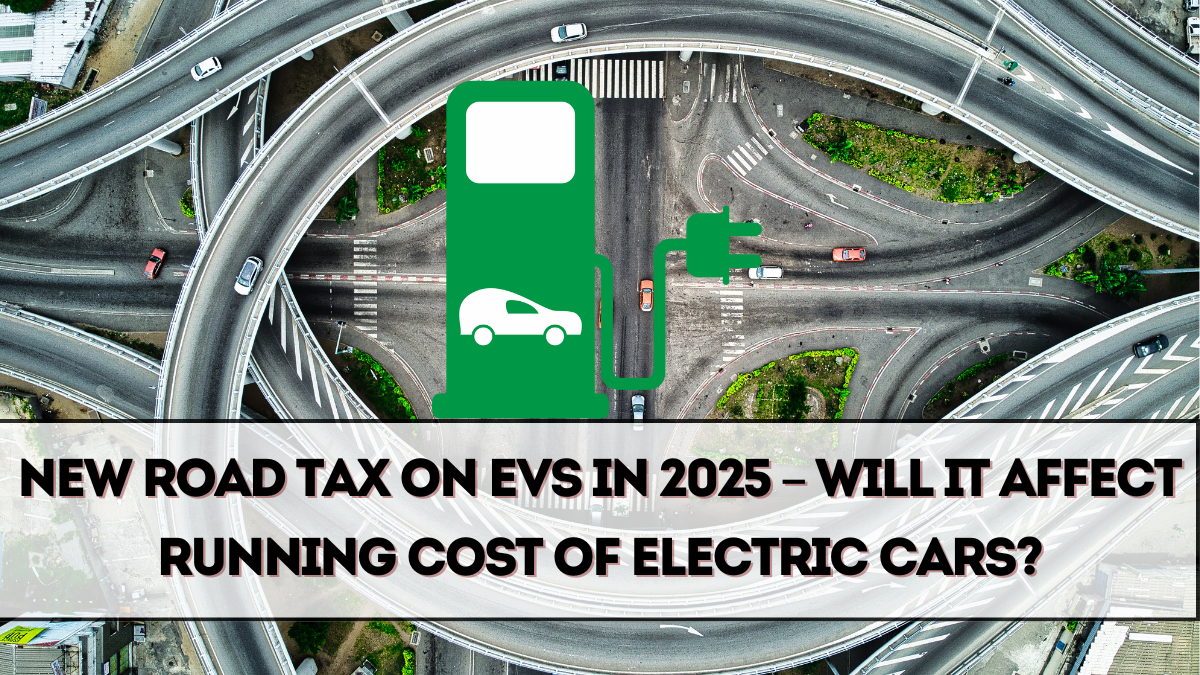Electric vehicles (EVs) have been promoted worldwide as the future of transportation, often benefiting from tax exemptions and government incentives. However, in 2025, both Australia and the UK are set to introduce a new EV road tax policy, sparking debate about its impact on buyers and owners. The New Road Tax for Electric Cars 2025 highlights a significant shift in EV policy, where governments balance environmental goals with the need to generate revenue for road infrastructure.

Why Governments Are Taxing EVs in 2025
For years, EV owners enjoyed lower ownership costs because they were exempt from fuel duties and road taxes. However, governments now face challenges:
-
Declining Fuel Tax Revenue: As petrol and diesel sales drop, funding for road maintenance is shrinking.
-
Rising EV Adoption: With millions of EVs on the road, governments argue that owners must contribute fairly.
-
Infrastructure Costs: Building charging stations and upgrading grids require additional revenue.
-
Fairness Principle: Policymakers believe all vehicle owners should pay for road usage, regardless of fuel type.
Thus, the EV road tax 2025 policies are designed to balance sustainability with financial practicality.
UK – EV Road Tax 2025
The UK will officially implement road tax for EVs from April 2025. Key updates include:
-
Vehicle Excise Duty (VED): EVs will no longer be exempt and will pay the standard £10–£165 annually depending on model.
-
Luxury EVs: Cars costing over £40,000 will face an additional £390 per year luxury surcharge.
-
Company Cars: Benefit-in-kind (BIK) rates will rise gradually, impacting businesses offering EVs to employees.
-
Impact on Owners: A typical EV driver may pay an extra £150–£500 per year.
The UK government insists this move is about fairness and funding road maintenance, not discouraging EV adoption.
Australia – EV Road Tax Updates
Australia follows a state-based system, and several regions will introduce new EV taxes in 2025:
-
Victoria & NSW: Distance-based tax of 2–2.5 cents per km for EVs. A driver covering 12,000 km annually may pay around AUD $250–300.
-
Queensland: Introducing a flat EV road levy of around AUD $300 annually.
-
Other States: Watching developments and expected to follow by 2026.
Australian policymakers argue that petrol drivers already pay through fuel excise, while EV drivers contribute little, making a road tax necessary.
How Much Will EV Owners Pay?
The new EV road tax 2025 varies by region, but average figures are as follows:
| Country | Road Tax Type | Average Cost per Year | Notes |
|---|---|---|---|
| UK | VED + surcharge | £150–£500 | Higher for luxury EVs |
| Australia | Distance/Flat Tax | AUD $250–$300 | State-based, varies by mileage |
This shows that while EVs remain cheaper to run than petrol cars, ownership costs are rising.
Will EVs Still Save Money?
Yes. Despite the green tax updates, EVs remain significantly cheaper to run:
-
Fuel vs Charging: EVs save £1,500–£2,000 per year (UK) and AUD $1,500 (Australia) compared to petrol.
-
Maintenance: EVs save another 30–40% due to fewer moving parts.
-
Incentives: Some rebates and subsidies still exist for EV purchases, offsetting tax costs.
Thus, while owners may pay new road tax fees, the net savings remain strong.
Impact on Buyers and the EV Market
The New Road Tax for Electric Cars 2025 may influence buyer decisions:
-
Short-Term Impact: Some hesitation among budget-conscious buyers.
-
Luxury EV Segment: Stronger impact due to higher surcharges.
-
Fleet Buyers: Companies may reconsider large EV fleet expansions due to rising BIK rates.
-
Resale Market: Used EV values may adjust slightly as taxes affect ownership costs.
However, experts believe the overall demand for EVs will continue to rise, given global environmental commitments.
Public Debate and Concerns
The new policies have triggered heated discussions:
-
Supporters: Argue road maintenance must be funded fairly, and EVs should contribute.
-
Critics: Claim new taxes discourage green adoption and slow climate goals.
-
Consumer Advocates: Warn that higher costs may burden middle-class families.
Governments are countering criticism by highlighting that taxes remain modest compared to the savings EVs provide.
Future of EV Taxation Beyond 2025
Looking ahead, taxation on EVs may become more dynamic:
-
Mileage-Based Taxes: Expected to become the global standard.
-
Smart Road Pricing: Using GPS to charge based on routes and congestion.
-
Tiered Green Taxes: Lower charges for eco-friendly EVs, higher for luxury and performance models.
-
Integration with Insurance: Road usage and insurance premiums may be combined into single digital systems.
The EV road tax 2025 is just the beginning of a larger shift toward more equitable, technology-driven taxation systems.
FAQs
When does the UK introduce road tax for EVs?
From April 2025, all EVs in the UK will pay standard VED, with additional charges for luxury models.
How much will EV drivers pay in Australia under the new tax?
Around AUD $250–300 annually, depending on mileage and state policies.
Will EVs still be cheaper than petrol cars after road tax?
Yes. Even with the new taxes, EVs save thousands annually on fuel and maintenance.
Why are governments taxing EVs now?
To recover lost fuel tax revenue, fund infrastructure, and ensure fairness among all road users.
Click here to know more.




